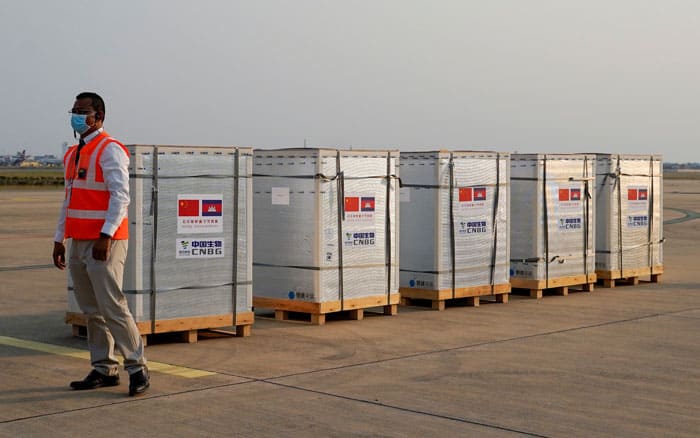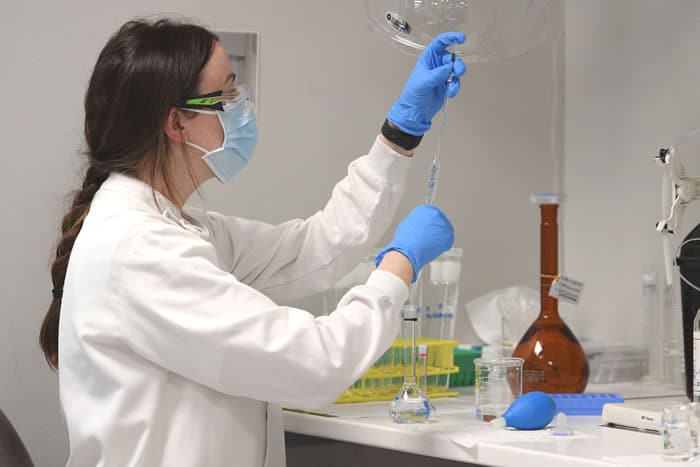In Bangladesh, health workers had 10 times more vaccine doses than willing takers.
A priest in Bangladesh has blamed misinformation and lack of promotion for the low turnout as the government’s mass COVID-19 vaccination program began in this Asian nation of 165 million people.
“There is a reluctance among people because there has been some propaganda that has had a negative impact on them. There is a lack of publicity,” Father Bablu Lawrence Sarker of the Khulna Diocese’s health care commission in southern Bangladesh told ucanews.com, a Catholic news agency covering Asia.
While more than 31,000 people who registered received their shots Feb. 7, according to government data, health workers were ready to vaccinate 360,000 people on the first day.
Social media carried posts about alleged side effects of the vaccine and difficulties in registering and getting to vaccination points, Father Sarker said.
The priest said he would be vaccinated, but “since it is a personal matter, there will be no instructions from the church about vaccination.”
Governments in Asia and Oceania were slower than their counterparts on other continents to offer COVID-19 vaccines. Larger countries, such as India and China, were offering vaccines to smaller countries, including to some countries outside Asia.

Prime Minister Hun Sen said his son was being vaccinated on his behalf as he believed China’s Sinopharm vaccine was found to have little effect on people over 60.
“Today, my son has become the first to be vaccinated on behalf of his father, which also confirms our responsibility to our compatriots. Do not worry about where the vaccine comes from and which brand it is, but one should worry about not getting vaccinated,” said 68-year-old Hun Sen.
China plans to provide 10 million doses of COVID-19 vaccines to the international vaccine distribution program COVAX, its government said Feb. 10, noting that this was primarily to meet the urgent needs of poorer countries.
The COVAX facility, backed by the World Health Organization, pools individual buying power to procure large-scale volumes of vaccines for every nation or economy that wants to participate. The idea is by pooling resources and donations, it can negotiate the best prices and get agreements from drug companies on large volume guarantees across a range of promising vaccine candidates.
Among other vaccine aid, China is helping Brunei, a tiny sultanate on the island of Borneo, ucanews.com reported.

The Australian government’s goal is to vaccinate 20 million people by October.
“In Australia, we have been very fortunate to be spared the very worst” of the pandemic, but “there are some (people within Australia) who have been harder hit,” the organization said in a Feb. 9 statement.
“We must address this and ensure we take better care of the elderly, the vulnerable and people with complex health needs,” it said.
The Australian state of Victoria was to enter lockdown Feb. 13 in a bid to suppress a COVID-19 outbreak. In Australia’s 2020 winter, Melbourne had one of the world’s strictest lockdowns to overcome a second wave that led to more 90% of the country’s 29,000 cases and 909 deaths.
New Zealand was scheduled to begin vaccinations Feb. 20.
Japan declared a coronavirus state of emergency in the Tokyo region in early January, just over six months before the Tokyo Olympics are due to begin. Since then, other parts of Japan have also had restrictions put in place.
Etsuko Akiba, member of the Pontifical Academy for Life and professor at the University of Toyama, Japan, said that 98 percent of the people in Japan who have died of COVID-19 have been people 60 and over.
Addressing an academy-hosted Feb. 9 online news conference from Japan, she described the serious social and psychological difficulties facing young and old people in Japan and said the Toyama prefecture has sought to reject the segregation of generations, creating a “regional community of mutual aid.”
“The present world war against COVID-19 is a rare chance for us to escape from an island country’s seclusive mentality and to get the cosmopolitan perspective” that is healthier and intergenerational, she said.
Featured image: A nurse injects a man with the Oxford-AstraZeneca COVID-19 vaccineat Dhaka Medical College vaccination center in Dhaka, Bangladesh, Feb. 9, 2021. (CNS photo/Mohammad Ponir Hossin, Reuters)

